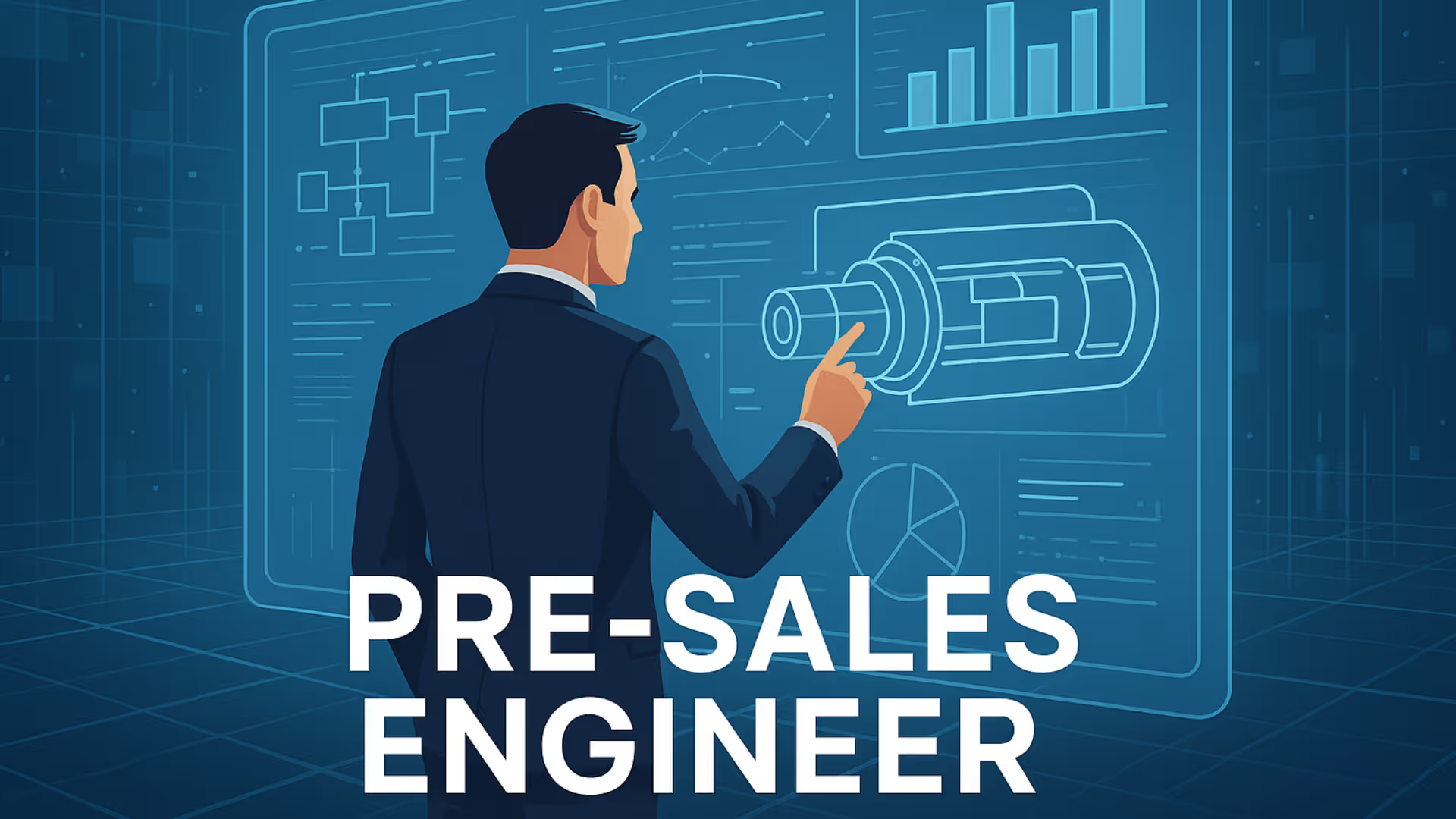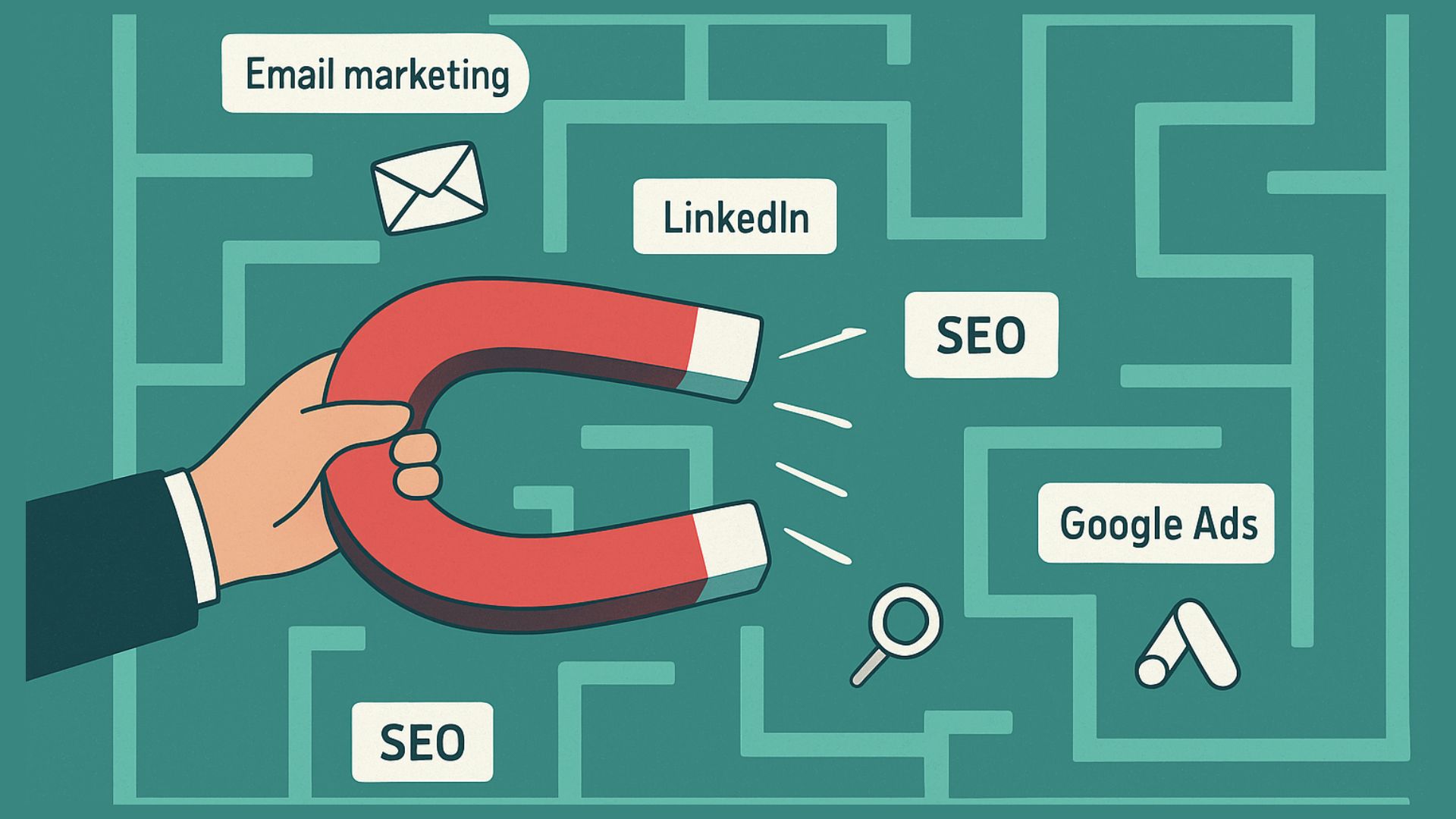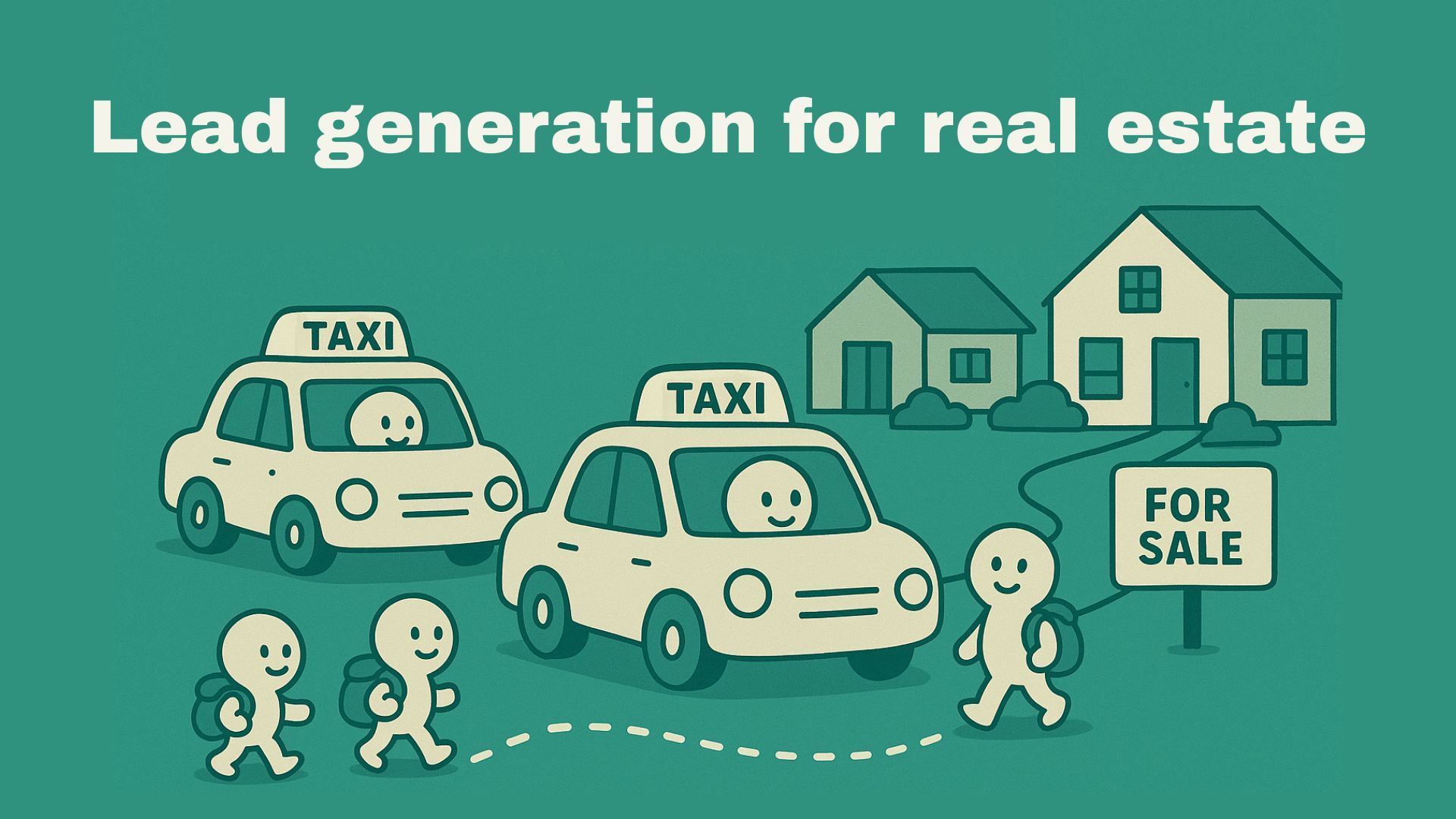

Buyers don’t trust presentations; they trust solutions and that’s what pre-sales engineers deliver.
They bridge the gap between what a product can do and what a customer actually needs. While sales reps open doors, pre-sales engineers build the confidence to walk through them.
Let’s explore the role of pre-sales engineers in detail.
Who is a pre-sales engineer?
{{callout-3}}
What are the responsibilities of a pre-sales engineer?
Discovery and requirement gathering
Pre-sales engineers begin by engaging with the customer to understand their business goals, technical challenges, and project requirements. This involves asking the right questions, actively listening, and documenting their needs to ensure the solution is aligned from the start.
Designing the solution
Based on the information gathered, they design a solution that meets the customer's technical and business requirements. This may involve selecting the right product components, defining system architecture, and ensuring scalability, security, and compatibility.
Demonstrating the product
They deliver customized product demonstrations that show how the solution works in a real-world context. These demos focus on the customer’s use case and highlight features that solve specific problems, helping to build confidence in the product.
Proof of concept and technical validation
Pre-sales engineers lead or support POCs to validate that the proposed solution performs as expected in the customer's environment. This step is critical for building trust and proving technical feasibility before a final decision is made.
Documentation and proposal support
They help prepare technical documentation, solution designs, and proposal materials. This includes contributing to RFPs, RFIs, and other sales documents by clearly outlining the technical approach and value proposition.
Collaborating with account executives
Pre-sales engineers work along with account executives throughout the sales cycle. While the account executive manages the commercial side, the pre-sales engineer ensures the technical solution is sound and effectively communicated.
Handling objections
When customers raise concerns or objections like technical limitations, integration worries, or competitive comparisons, the pre-sales engineer steps in to address them with facts, workarounds, or alternative solutions.
Post sales handover
Once a deal is closed, they ensure a smooth transition by handing over all relevant technical details to the implementation or customer success team. This helps avoid miscommunication and ensures that the customer receives a satisfactory experience.
What key skills do pre-sales engineers need?
Technical knowledge
You must deeply understand the products or solutions you represent, including how they work, how they’re implemented, and how they solve specific customer problems.
How to improve this skill?
- Regularly read product documentation and release notes.
- Take online courses or certifications in relevant tech (e.g., cloud, cybersecurity, SaaS).
- Join technical communities or forums to stay current with industry trends.
Communication skills
Pre-sales engineers must be excellent communicators. You need to know how to explain complex technical concepts in a way that’s easy for non-technical stakeholders to understand.
How to improve this skill?
- Record yourself during mock calls or meetings to refine clarity and tone.
- Read books like “Made to Stick” or “Crucial Conversations” for frameworks on effective messaging.
Presentation skills
Delivering compelling presentations is a key part of a pre-sales engineer’s job. Whether showcasing product demos, conducting webinars, or leading discovery sessions, you must be able to present information in a persuasive and professional manner.
How to improve this skill?
- Rehearse demos and pitches regularly, ideally in front of peers for feedback.
- Use tools like Toastmasters or video recording apps to boost confidence.
- Study and learn from great presenters like Anand Munshi, Akash Gautam and adopt techniques like storytelling.
Problem solving skills
Pre-sales engineers often face unique business challenges from potential customers. You must think critically and creatively to tailor solutions that meet those specific needs.
How to improve this skill?
- Engage in role-playing scenarios to learn how to devise solutions.
- Work with support or implementation teams to learn common customer pain points.
- Develop a structured approach like “Identify, Analyze, Solve, Validate.”
Collaboration
Pre-sales engineers work closely with sales teams, product managers, engineers, and customers. Effective collaboration is crucial to ensure the solution being offered is both technically feasible and aligned with the sales strategy. Being a team player, open to feedback, and adaptable to different working styles can significantly enhance overall performance and customer satisfaction.
How to improve this skill?
- Set regular syncs with cross-functional teams to understand their perspectives.
- Use collaboration tools effectively (Slack, Notion, Jira, etc.).
- Actively listen and encourage input during meetings. Prioritise team success over individual credit.
How to become a pre-sales engineer?
If you're considering a pre-sales engineer career path, here are the steps to take to make it possible:
Obtain a degree
While not always mandatory, most employers prefer candidates with a bachelor’s degree in engineering, computer science, information technology, or a related field. A strong technical foundation helps you understand complex products and communicate their value effectively to customers.
Upskill with certifications
In order to stand out, pursue industry-recognized certifications. Many companies value certifications that demonstrate both technical proficiency and sales acumen. Some popular options include:
- CompTIA Network+ or Security+
- Cisco Certified Network Associate (CCNA)
- AWS Certified Solutions Architect
- Salesforce Certified Technical Architect
- Certified Pre-Sales Engineer (CPSE)
Develop necessary skills
A successful pre-sales engineer needs more than just technical know-how. They also need other skills such as communication, problem solving, collaboration, business acumen etc.
Gain relevant experience
Start by gaining experience in technical support, system administration, consulting, or software development. This builds your product knowledge and customer interaction skills which are critical in pre-sales roles.
Apply for entry level roles
Once you've built a strong foundation, apply for entry-level pre-sales roles like associate pre-sales engineer, junior solutions consultant, sales support specialist. These positions offer exposure to the sales process and customer-facing scenarios, allowing you to learn from experienced engineers while simultaneously advancing your career.
{{callout-2}}
What tools do pre-sales engineers use?
Which KPIs help measure success of pre-sales engineers?
Technical validation success rate
This measures the percentage of opportunities where the technical solution was approved by the customer. A high technical validation success rate indicates strong alignment between the proposed solution and the customer’s technical needs
Demo/POC conversion rate
This measures the number of demos or proof-of-concepts (POCs) which lead to the next sales stage or closed deals. A high demo conversion rate indicates that the pre-sales engineer is effective in demonstrating value.
Time to solution
This refers to the average time taken to design and deliver a suitable solution or response to customer requirements. Faster turnaround indicates better responsiveness.
Proposal accuracy/ Rework rate
This measures the frequency of errors or revisions required in technical proposals or solution documents. Fewer reworks mean better quality control and stronger understanding of customer needs from the outset.
Training and enablement delivered
This measures the quantity and quality of internal or customer-facing training sessions delivered. This metric highlights the pre-sales engineer’s contribution to building technical expertise across internal teams and educating customers.
What challenges do pre-sales engineers face?
Balancing technical depth with business relevance
Being too technical could overwhelm customers.
Solution: Tailor your message according to the audience. For executives, focus on business impact. For technical teams, dive into architecture, integration, and scalability.
Make your demos relatable by using real-world scenarios based on the customer’s industry and challenges. Connect features to business outcomes. During POCs, clearly define success criteria upfront and frame technical results in terms of impact and ROI.
Managing tight timelines and multiple deals
Pre-sales engineers often support several deals at the same time which can lead to missed details, rushed work, or burnout if not managed well.
Solution: Prioritise deals based on deal stage and potential value. In order to save time, use reusable resources like templates, solution libraries, and shared demo assets for tasks that repeat across deals. This helps maintain quality without overworking.
Handling unclear or changing customer requirements
Customers often don’t know exactly what they need or change direction mid-process.
Solution: Use structured discovery sessions to clarify needs early. Ask probing questions to uncover root problems like “What specific outcomes are you hoping to achieve with this solution”, “Have you tried solving this before? What worked and what didn’t?” and document all requirements and assumptions. Design flexible solutions and keep stakeholders informed of trade-offs when changes occur.
Keeping up with rapidly changing technology
Staying informed about product updates and market trends can be demanding.
Solution: Set aside time each week for continuous learning. Ensure that you review product release notes, attend internal training, and follow industry blogs or webinars. Build a network of product experts internally so you can get quick answers when necessary.
What are some pre-sales engineer interview questions?
Question #1: Describe a time when your involvement in a deal helped move it forward technically?
How to answer: "In one deal, the customer was worried that our solution might not handle their future data growth. I collaborated with our engineering team to recreate a scenario using their data patterns to test how the system would perform with higher demand. After running the tests, I shared the results with the customer, explained how our system could scale, and showed them how our product roadmap matched their long-term goals. This helped ease their concerns and gave them the confidence to move forward with our solution.”
Question #2: How do you handle situations where the product doesn’t fully meet the customer’s requirements?
How to answer: "When a product doesn’t fully meet a customer’s needs, I’m always honest about it. I focus on what alternatives are possible like suggesting workarounds, using APIs, or integrating third-party tools. For example, one customer needed a specific export format that our product didn’t support at the time. I created a quick custom script to help them in the short term and also spoke with our product team about possibly adding it to the roadmap. Being transparent and proactive helped build trust and kept the deal moving."
Question #3: How do you measure your own success as a pre-sales engineer?
How to answer: "I look at KPIs like demo-to-opportunity conversion, technical win rate, POC success, and feedback from AEs. I also track how often customers move forward after technical validation, and how well I contribute to shortened sales cycles or influence upsell opportunities."
Question #4: Tell me about a time when a POC didn’t go as planned? What did you learn from this experience?
How to answer: "Once, a POC failed due to an overlooked integration requirement. I learnt the importance of confirming infrastructure readiness and customer ownership early. Since then, I always run a POC readiness checklist covering environment access, success criteria, and communication cadence to avoid surprises."
Tips for aspiring pre-sales engineers
For those wanting to become a pre-sales engineer, these tips will be invaluable:
- Study customer case studies and demo scripts alongside technical docs.
- Practice explaining a technical concept to a non technical friend or family member.
- Practice active listening in meetings: take notes, ask clarifying questions and don’t rush to demo mode.
- Understand sales fundamentals in detail by reading books like The Challenger Sale by Matthew Dixon or Sell with a Story by Paul Smith, and shadowing sales calls.
- Take online courses (like AWS fundamentals, Postman API testing, or Docker basics) relevant to your product.
- Create a simple feedback form or ask for 5-minute debriefs after major engagements.
- Use Notion, Confluence, or a personal wiki to organize your pre-sales toolkit.
Pre-sales engineer salary
In India, the estimated total pay for a pre-sales engineer is ₹8,00,000 per year, with an average salary of ₹7,00,000 per year. However, it's important to note that salary can vastly vary based on location, experience, company size, and specific industry even within India. Source
Heading text
Nunc sed faucibus bibendum feugiat sed interdum. Ipsum egestas condimentum mi massa. In tincidunt pharetra consectetur sed duis facilisis metus. Etiam egestas in nec sed et. Quis lobortis at sit dictum eget nibh tortor commodo cursus.
Odio felis sagittis, morbi feugiat tortor vitae feugiat fusce aliquet. Nam elementum urna nisi aliquet erat dolor enim. Ornare id morbi eget ipsum. Aliquam senectus neque ut id eget consectetur dictum. Donec posuere pharetra odio consequat scelerisque et, nunc tortor.
Nulla adipiscing erat a erat. Condimentum lorem posuere gravida enim posuere cursus diam.
.svg)






